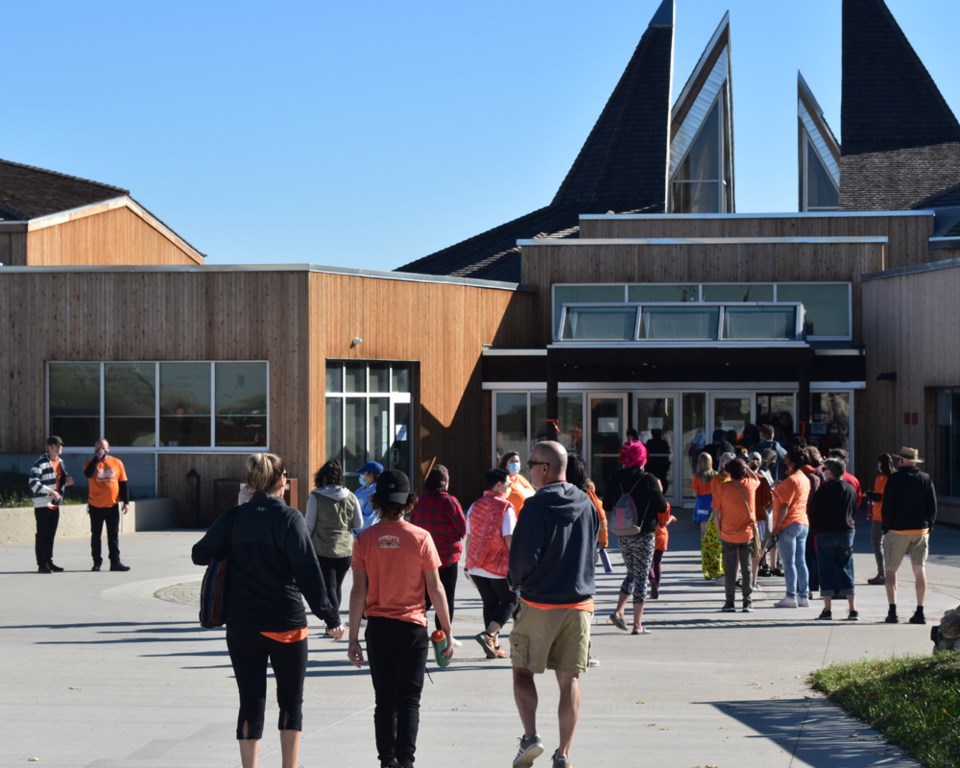SASKATOON — Honey Constant knows how important the first National Day for Truth and Reconciliation to the communities of Indigenous Peoples in the country. The day is also close to her family with both of her grandparents among the survivors of Canada’s residential school system.
The government declared Thursday, Sept. 30, as the first National Day for Truth and Reconciliation. The federal statutory holiday honours all Indigenous children who lost their lives in residential schools, the survivors, their families, and communities.
Stories of how Indigenous children were treated in church-run residential schools are a dark part of the country’s history with its impact still being felt today. The federal government and the Catholic church are in the process of reconciliation and healing.
Constant, a community coordinator at Wanuskewin Heritage Park, said even though she had never stepped foot in a residential school she had felt the impact of what happened after hearing the stories from her grandparents.
Constant said that her mushum [grandfather] told her mother that she will never learn to speak Cree, their language, in order to protect her granddaughter.
“He didn’t say that to hurt or harm me. He wanted to make sure I was protected, and I that I would never have to deal with the things that he had because he spoke his language.”
“When I was a teenager I started learning and practicing more; my favourite [Cree] word is sîsîp, it means duck,” said Constant that drew laughter from a huge crowd gathered in front of the park’s visitor centre. “I started learning words very slowly over time. I love my mushum and my mushum loves me very much.”
She added every survivor, however, must deal with the trauma and pain of what they had experienced attending residential school.
“There's all those things that come along with it. And he [grandfather] never spoke Cree to me. He spoke Cree near me but never directly to me.”
Constant recalled one phone conversation she had with her grandfather. “He started speaking to me really fast in Cree. This was strange and it never happened [before]. I was shocked. I was like ‘oh, what?’ He just started laughing and said: ‘I asked you who your mom was.’ I knew those words, but I was never quick [to understand] because he never spoke Cree to me.”
“After that, he told me that he was ready to help me and my sister learn Cree. He was ready to help us learn and practice. Every once in a while, you get a phone call, and it used to be just words. This summer when it was really hot, he taught me this new word: kisâstew, it’s hot. Now, it's actual full sentences.”
“Slowly, a little bit by bit, me and my mushum we are reconnecting. We’re building our relationship. But again, like I really love him, and I don't fault him for anything that he did or anything that has happened to him.”
Wanuskewin chief executive officer Darlene Brander said first National Day for Truth and Reconciliation is important to everyone who was impacted by the residential school system; the weight is still being felt today.
“Honey said it best when she said that these events are meant for the community to help to heal forward.”



